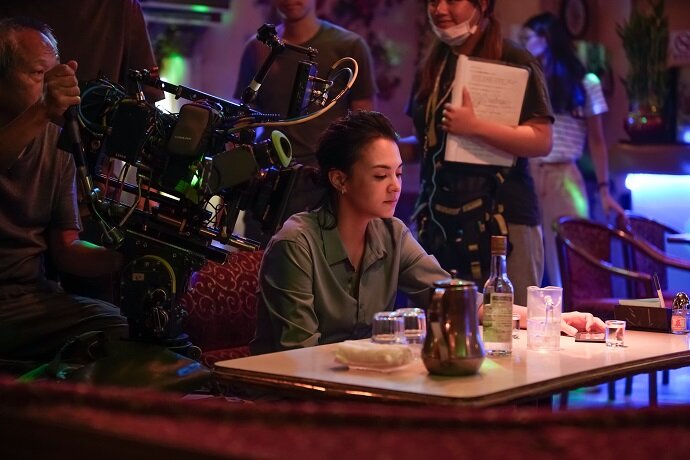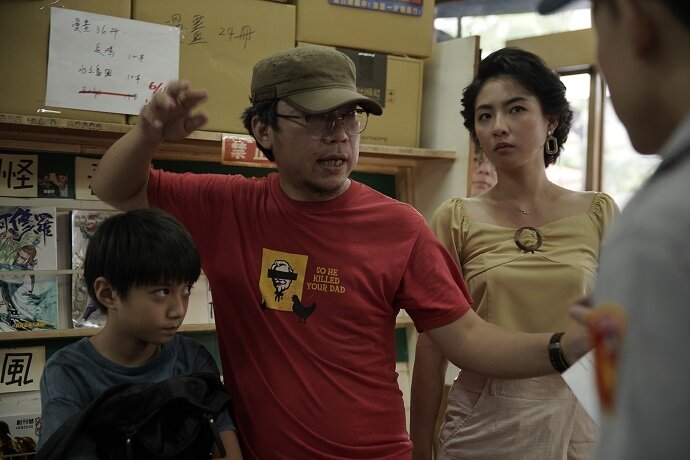"The road to hell is paved with good intentions."
―Friedrich August von Hayek
Trinity of Shadows is the story about criminal policewoman Hsu Tze-Wei (Sandrine Pinna), whose father was a murderer. Hsu encounters a series of rape and murder cases in which the same methods her father once used have been employed, but after trying to track down the real perpetrator, she discovers that many of the people around her have strangely ambiguous connections with the murders.

This story was inspired by a real case. In the 1996 Chiang Kuo-ching case, the suspect Chiang Kuo-ching was executed less than one year after the murder occurred. But when Chiang was found not guilty in a posthumous trial in 2011, society realized that a young life had been sacrificed in a case that did nothing to uncover the truth. Many people were involved in this case: Apart from the victim's family and Chiang Kuo-ching's family, the case also involved the air force intelligence command, the military police unit, and later the military courts and top brass. After the case had been reversed, a search of relevant information discovered that regardless of whether in media reports or in court question and answer sessions, all of the players in the case sought to achieve some pre-determined purpose, crack the case in a hurry, encourage belief in scientific evidence, or allegedly to obtain a promotion, but the most important actual truth was never uncovered.
In 2013, Chiang Kuo-ching's fellow air force member Hsu Rong-zhou was arrested, and was thought for a while to be the real murderer in this case. However, after a year, he received a verdict of not guilty due to insufficient evidence. The same things happened again in this second case, with the prosecutor, forensics investigators, court, and every participant seeking pre-determined decisions, but the identity of actual perpetrator is still unknown.
A few years later, director Po-Hao Hung saw the words "A Bodhisattva-mahāsattva constantly smashes the obstacle of ignorance like dust and sand" in the Buddhist scripture Six Dharma Gates. At that time, He interpreted this sentence as meaning that, to become a Bodhisattva, one must certainly conquer one's dust-like doubts about the mundane world. Inspired by his doubts about the Chiang Kuo-ching case, he therefore created the story Trinity of Shadows.
Director Po-Hao Hung (centre)
When each person receives his or her verdict, they all hope for the most just and impartial judgment. But this judgment inevitably exists only in that person's mind or ideals. None of them is a god or Bodhisattva, and they never arrive at the day on which their doubt is entirely cleared away. Each one can only make a choice, and this choice is about what they will believe to be true.
In this drama, each person is trying to help others reach heaven. Since their paths are paved with good intentions, they can hardly imagine that their destination is hell. This story combines elements including crime investigation, local elections, and the common criminal occupations. Through the leading character Tze-Wei and the others, we find an answer for each person in this mundane world.







